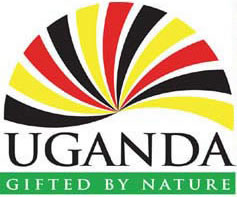Location
Uganda is a landlocked East African country that is bordered by Sudan to the North, Kenya to the East and Tanzania and Rwanda to the South with a population of approximately 26 million. Uganda lies between the two arms of the Great Rift Valley in East Africa. It is crossed by the equator. It lies between latitudes 4 degrees 12″ north and 1 degree 29″ south and longitudes 29 degrees 5″ and 25″ east. It is roughly the same in size to Great Britain, Ghana or the state of Oregon in the United States of America. It is bordered by Kenya to the East, Sudan to the North, DRC to the West and Tanzania and Rwanda to the south.
Size
Uganda is part of the Great Lakes region. The countries covers 241,139 sq. km of which 42.000 (17%) sq km is made up of swamps and open fresh water bodies. 30,000 sq km (12%) forest reserves and game parks.
Terrain:
Uganda lies in the Great African Plateau with an average altitude of 1200m (4000ft) above sea level broken by the Great Rift Valley to the Western Side. Elevated areas are the Rwenzori mountains (5000m) with permanent snow cover and Mount Elgon (4300m). The Nile, the world’s second longest river starts its journey from the world’s second largest fresh water body, Lake Victoria at Jinja.
Climate:
Uganda’s climate is equatorial but its elevated altitude affects it. The average annual temperature is 26 degrees Centigrade over much of the country though 5 degrees Centigrade in South Western and 35 degrees Centigrade in the North and North East can be recorded. Average annual rainfall is 1000mm in most parts of the country, 500mm in North East and 2000mm in Ssese Islands. Most of Uganda is green all year round.
Languages
English is the national language which is taught in most grade schools and also used by most newspapers and some radio stations. Kiswahili and Luganda are also other languages widely spoken. Uganda is a nation of huge diversity with over 50 tribes resident in this robust nation- the languages are as diverse as the friendly people. Rest assured though, in whatever language, the people are still friendly.
Main Towns
Kampala(capital city) ,Entebbe ,Jinja , Mbarara , Mbale , Gulu , Arua , Fort Portal.
Independence date
October 9, 1962 (from Britain)
Economy
Uganda has is abundantly blessed with rich natural resources, including fertile soils, regular rainfall and mineral deposits of copper and cobalt. Agriculture is one of the biggest sector in the economy, that employs over 80% in the country. Since 1986, Uganda with the help of foreign countries and international agencies has worked in rehabilitating and stabilizing the economy through undertaking currency reform, improving civil service wages and many more which has led to boost in production and export earnings in the country. For more information please visit www.bizuganda.com
Currency
The Ugandan shilling is legal tender in Uganda. The paper notes are in the denominations of 1000, 5,000, 10,000, 20,000, 50,000. There are also coins in usage in denominations of 5, 10, 20, in the country. They are no restrictions on money transfers in and out of Uganda.
